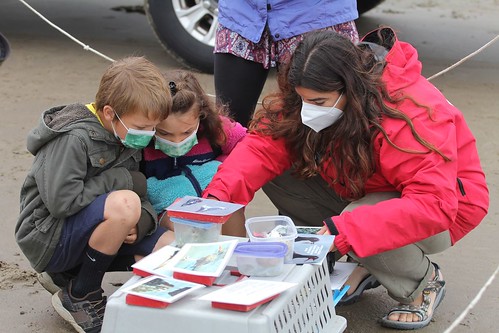Science policy has always appeared to me as something done solely at the federal level. While I knew this assumption wasn’t entirely correct, I always found myself imagining people in DC tackling topics concerning the public good and ethics of science. My Haystack Rock Awareness Program internship has allowed me to see the different levels and sides that play into science policy. I’ve had the pleasure of meeting with an Oregon Fish and Wildlife employee and was able to pick their brain about the different career options within government jobs and their role in the policy. Based on my interactions with the general public and those working under organizations, I have come to notice that for the most part, the people that are most involved and interested in nature and its well being, tend to be the ones that have some sort of understanding of science policy and how it affects what they love.
HRAP provided me with a deeper understanding of how local organizations can help uphold the policies put in place to protect nature. The staff works graciously with the tourists and locals that come to the beach and do their best to educate them on not only the ecology at the rock but also on why and how this marine garden became a marine protected area. In my opinion, this form of enforcement has been incredibly beneficial for the beach and for the onlookers. I’ve also come to realize how hard it can be to enforce laws targeted towards marine conservation and preservation because of the general lack of understanding behind why conservation and preservation are so important. I’ve come across people who think that the rock’s protection isn’t important and that they should be allowed to climb it. On the other hand, I’ve also come across people that have a deep understanding of how the ecology of the rock has changed over the years and have come to care for its preservation and appreciate the work done by HRAP.
As I dive deeper into my project, the more I learn about the importance of science communication and how it can help with the communication gaps between scientists, the general public, and policymakers among many others. The general public involvement in the scientific research happening in their communities or around what affects their communities is something that I believe they are entitled to, and in this regard should be more accessible for individuals that have not been scientifically trained. For me, facilitating the dialogue and providing the public with accessible language to science is something that I see myself doing whether I’m doing the research myself or I find myself in a science communication role.


